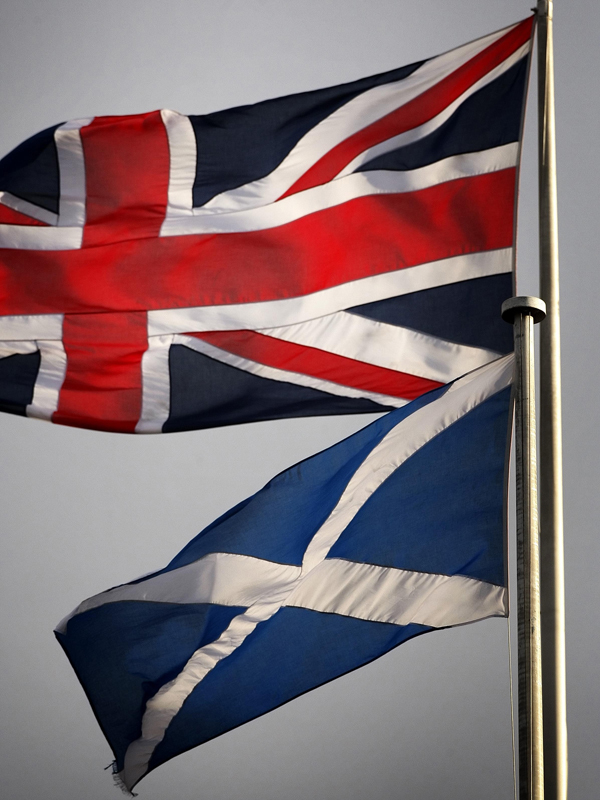Labour has warned independence will result in a “border effect”, reducing trade and employment opportunities between England and Scotland.
Shadow Scottish Secretary Margaret Curran said there was clear evidence that Scotland’s economic prospects would be damaged by the break-up of the Union.
She will be in Lockerbie today to launch a new briefing paper on the so-called border effect.
It highlights that 65% of Scottish exports, worth £48billion, are sent to the rest of the UK and forecasts these would be 83% lower after 30 years of independence.
The Scottish Labour document cites research estimating that the US-Canada border reduces trade between the two countries by 44% – and says that even where states have free trade agreements, or the type of integration found in the EU, the effect still exists.
“The amount of Ireland’s trade going to the UK has fallen from just under 90% immediately after the establishment of the Irish Free State in the 1920s to between 20-30% in the 2000s,” the paper says.
“This decline continued in spite of free trade agreements and membership of the European Union.”
Ms Curran said as part of the UK Scotland enjoyed the “best of both worlds”, able to sell goods and services to 60million people.
“The research we are publishing today provides clear evidence that an international border would lead to a ‘border effect’ that would damage Scotland’s economic prospects,” she said.
“This is real evidence that if you want to protect Scottish jobs you should vote No in September.”
Paul Fletcher, of the pro-independence group Business for Scotland, said the main threat to Scottish trade was from the “border that the UK parties seem determined to put up between Scotland and the EU”.
He added: “It’s also the case that no research has yet looked at how big the current border effect is between Scotland and England so there is no baseline for the assertions in the paper.
“Some research has suggested that the border effect owes as much to cultural differences as to anything else so the question would be as much about how big the cultural differences between Scotland and England are.”
